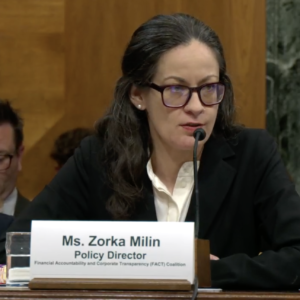
FACT Policy Director Testifies on Offshore Tax Evasion Before Senate Budget Committee
Read FACT policy director Zorka Milin’s full written testimony before the Senate Budget Committee, which details policy recommendations to curb offshore tax evasion by individuals and major multinationals.






